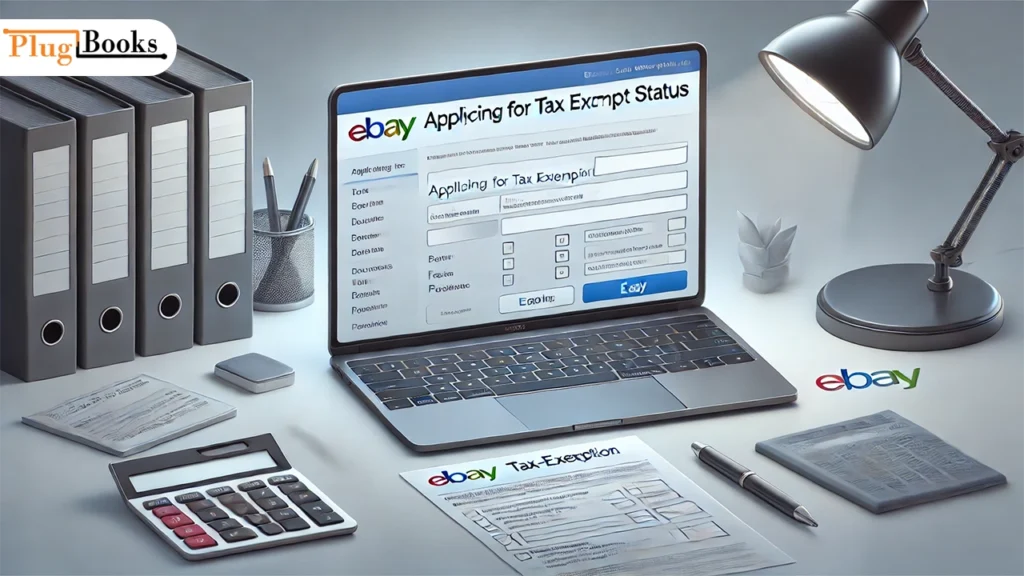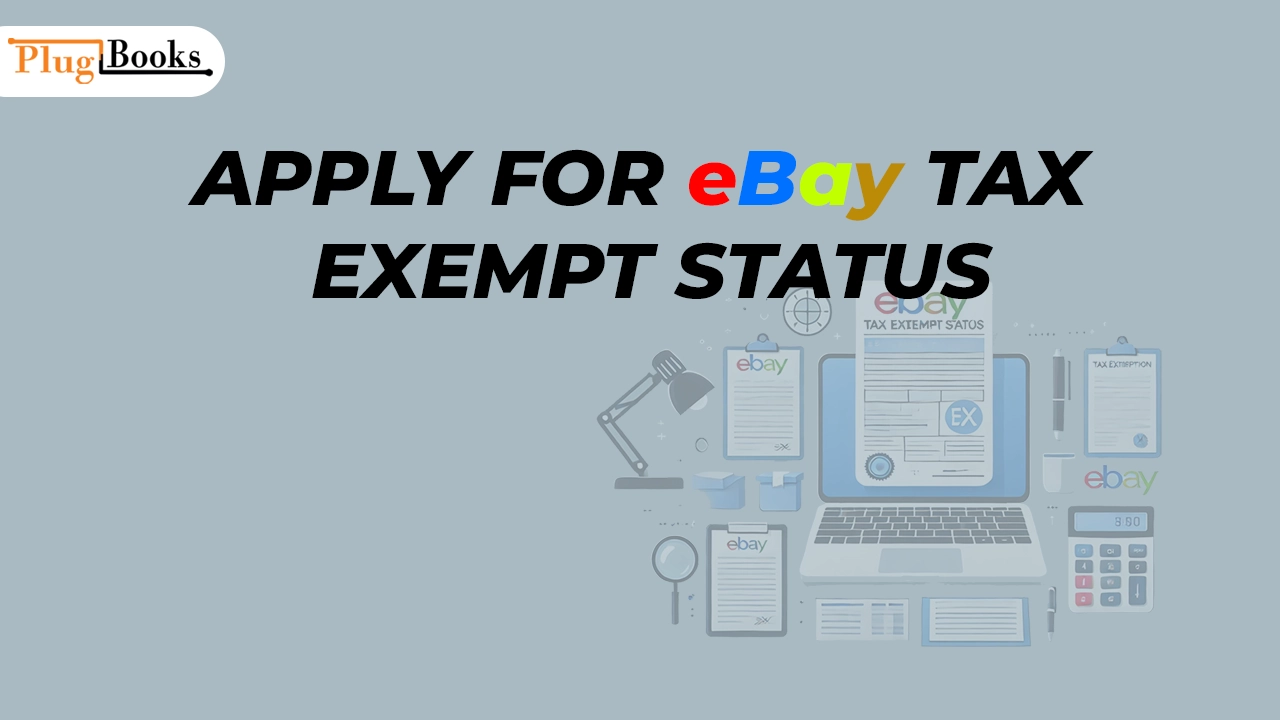You might be asking how to apply for eBay tax exempt status if you sell goods on eBay or buy anything there trying to avoid needless sales tax. Thankfully, eBay provides a straightforward way for eligible companies and enterprises to free themselves from paying sales tax on transactions.
Getting it can help you lower your expenses and simplify your buying experience regardless of your business type—reseller, nonprofit, government agency, or another.
We will guide you through all you need to know about applying for it in this blog article including how to add a tax exempt number to your eBay account and what kinds of exemptions are available.
How Do You Apply for eBay Tax Exemption as a Seller?
As a seller, applying for eBay tax exemptions is a simple process that can help you save money on purchases. Here’s how to apply should you be eligible for tax-exempt status:
1. Log into your eBay account.
Begin by logging into your eBay account. Should you not currently have a seller account, you will have to create one.
2. Review Account Settings
Click your profile symbol after you have signed in to access your “Account Settings,” where the “Tax Exemption” section is found.
3. Send required tax documentation.
You must upload your tax exemption number or any pertinent information. This might contain a document attesting to your nonprofit or government standing or a resale certificate.
4. Send and Await Verify
eBay will check your paperwork following your submission of an exemption request. Once accepted, you will be informed and your eBay account will show tax-exempt status.
Your tax exemption will relieve you of concerns regarding sales tax on qualified purchases.
How Do You Add a Tax Exempt Number to eBay?
Should you be asking, “How do you add a tax exempt number to eBay?” we have you covered. This detailed instruction will enable you to easily enter your tax-exempt number into your account:
1. Log into your eBay account
- Visit eBay’s website and log on using your credentials.
2. Travel to Business Information
- Get to your “Account Settings,” then choose “Business Information.” Look at the part on “Tax Exemption.”
3. Add Your Tax Exempt Number Here
- You must provide your valid tax-exempt number produced by your state or tax agency.
Send for evaluation.
eBay will confirm your eligibility and evaluate your tax-exempt information. You won’t be charged sales tax on qualified purchases once authorized.
You may begin shopping tax-free on eBay once you’ve finished this step!

eBay Tax Exemption: What Types Are Available?
eBay understands numerous kinds of tax exemptions. The most often occurring forms are broken out here along with illustrations of their application:
1. One qualifies for a sales tax exemption:
- If they are a retailer purchasing items to resale. For her store, Sarah, for example, purchases items on eBay. She saves sales tax on such purchases by turning in her reseller certificate.
2. Nonprofit Organizations Exemption:
- eBay is used by a nearby animal shelter for pet goods buying. Being a nonprofit allows them to be eligible for tax exemptions, therefore helping them to lower expenses and direct more funds toward their purpose.
3. Government Entities Exemption:
- For its everyday activities, a government office purchases office supplies from eBay under government entities exemption. They are a government body hence they are not liable for sales tax.
4. Educational Institutions Exemption:
- Using eBay, a university orders books and instructional materials for its library. Applying the institution’s tax-exempt status results in no sales tax paid.
eBay Sales Tax Exemption: How It Works for Buyers
Once you have eBay tax-exempt status, you can buy items free from sales tax providing they satisfy the exemption requirements. For companies, non-profit groups, and colleges who often purchase on eBay, this may be quite helpful. The mechanism operates as follows:
- Check Your Exemption: The system will treat your account as exempt from sales tax after you apply and eBay approves your tax-free status.
- Qualified Buys: eBay will automatically eliminate sales tax at checkout when you make qualified purchases.
- States-Specific Rules: Remember that depending on where you or your company are headquartered, eBay tax breaks might only apply in particular states.
With eBay sales tax exemption, shopping for items is simpler and less expensive.

Common eBay Tax Exemption Issues and How to Avoid Them
Although applying for eBay tax exemption is normally easy, there are certain typical problems that might cause delay in your clearance. One can prevent them as follows:
1. Inaccurate Notes
- Make sure the papers you send—such as your nonprofit documentation or resale certificate—are current and accurate. Older or inadequate documentation might slow down acceptance.
2. Mismatch of Information:
- Verify that the information you submit matches the information on your exemption certificate. Any differences might turn eBay away from your submission.
3. Ineligibility
- Make sure you really fit for tax exemption. Certain states have certain guidelines on who qualifies for exemptions, notably those pertaining to enterprises buying for resale or particular kinds of non-profit organizations.
Should you run across any of these problems, don’t hesitate to call eBay customer service for help. They can guarantee that your tax-exempt status is correctly applied to your account and assist you fix any issues.
Conclusion
Businesses, charities, and government agencies may all save money via eBay tax exemptions. Following the easy application guidelines and attaching your tax-exempt number will help you to avoid sales tax on qualified purchases and maximize eBay savings.
See PlugBooks.io for professional tax exemption and other business needs guidance for more help.




